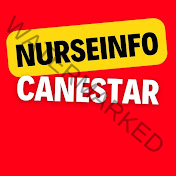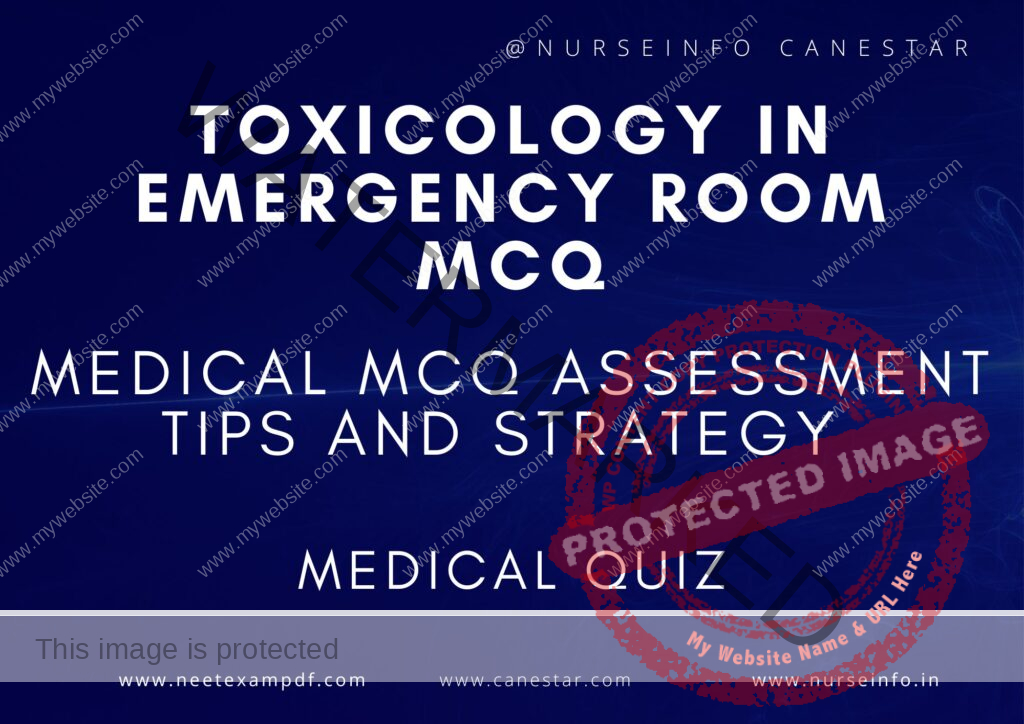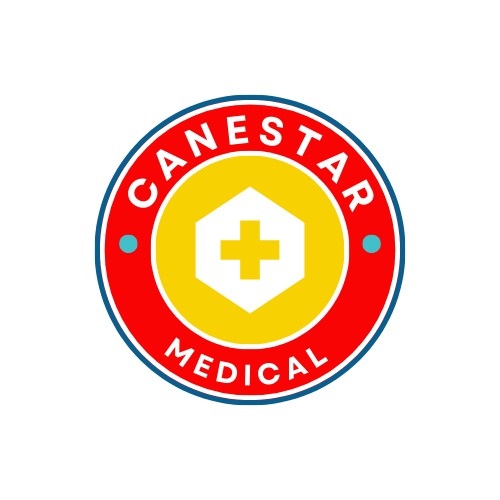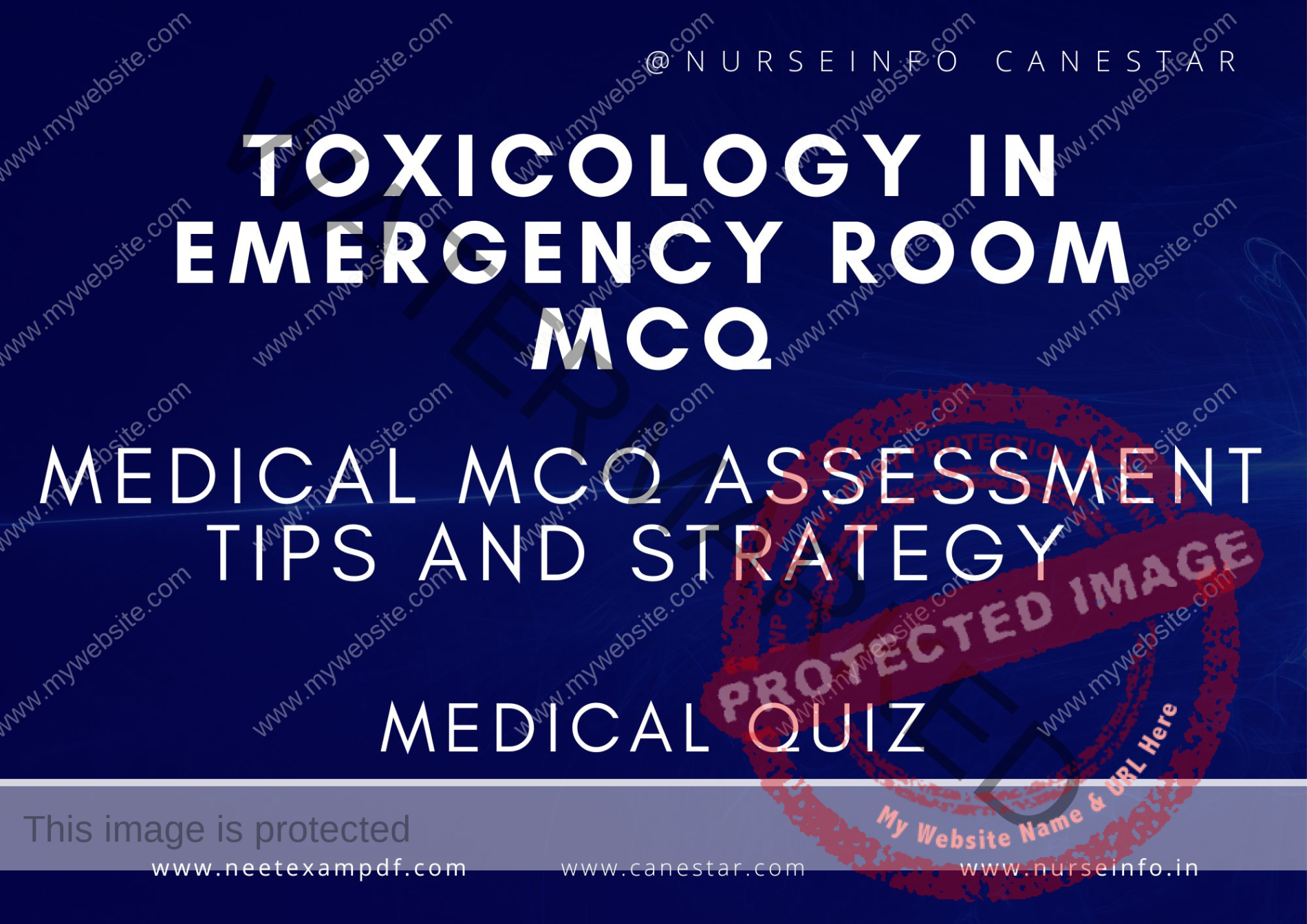TOXICOLOGY IN EMERGENCY MEDICINE AND ICU MCQ
TOXICOLOGY IN EMERGENCY MEDICINE AND ICU MCQ – MEDICAL MCQ – MEDICAL QUIZ ON TOXICOLOGY FOR HEALTH PROFESSIONALS (Free PDF)
These mcqs are prepared exclusively for medical professionals for exam preparation. MCQ is helpful to remember the concept on toxicology in ICU or emergency medicine. This multiple choice questions are helpful for preparation for DHA, PROMETRIC, MOH, HAAD, NCLEX and other medical and nurse EXAMINATION

Which of the following is the antidote for acetaminophen (paracetamol) overdose?
a) Activated charcoal
b) Atropine
c) N-acetylcysteine
d) Naloxone
Answer: c) N-acetylcysteine
What is the first step in the management of a suspected poisoning case?
a) Administering antidotes
b) Decontamination
c) Assessing and securing the airway, breathing, and circulation (ABCs)
d) Obtaining a detailed history
Answer: c) Assessing and securing the airway, breathing, and circulation (ABCs)
Which of the following symptoms is most commonly associated with opioid overdose?
a) Tachycardia
b) Hyperthermia
c) Miosis (pinpoint pupils)
d) Hypertension
Answer: c) Miosis (pinpoint pupils)
What is the recommended treatment for benzodiazepine overdose?
a) Flumazenil
b) Naloxone
c) Atropine
d) Pralidoxime
Answer: a) Flumazenil
Which poison is associated with a “bitter almond” smell?
a) Cyanide
b) Arsenic
c) Methanol
d) Ethylene glycol
Answer: a) Cyanide
In the case of suspected carbon monoxide poisoning, which of the following is the best initial treatment?
a) Hyperbaric oxygen therapy
b) 100% oxygen via non-rebreather mask
c) Activated charcoal
d) Intravenous fluids
Answer: b) 100% oxygen via non-rebreather mask
Which toxic substance is commonly associated with metabolic acidosis and an increased anion gap?
a) Ethanol
b) Methanol
c) Carbon monoxide
d) Cyanide
Answer: b) Methanol
The presence of “garlic odor” in the breath is characteristic of poisoning with which substance?
a) Organophosphates
b) Arsenic
c) Cyanide
d) Methanol
Answer: b) Arsenic
Which of the following drugs is used to treat methanol poisoning? a) Ethanol
b) Flumazenil
c) Atropine
d) N-acetylcysteine
Answer: a) Ethanol
Ingestion of which of the following substances can lead to “anticholinergic syndrome”?
a) Benzodiazepines
b) Organophosphates
c) Antihistamines
d) Beta-blockers
Answer: c) Antihistamines

Medical MCQs for Exam Preparation
Medical MCQ assessment. MCQ test is designed to evaluate your knowledge and understanding of key concepts in the medical field. Here’s what you need to know before you begin:
Purpose
The MCQs are intended to:
- Assess your comprehension of medical theories and practices.
- Test your ability to apply knowledge in clinical scenarios.
- Evaluate your critical thinking and problem-solving skills.
Format
- Each question is followed by four or five possible answers.
- Only one answer is correct.
- Read each question carefully and select the best possible answer.
Guidelines
- Read Thoroughly: Ensure you understand the question before looking at the options.
- Elimination: Rule out the clearly incorrect answers to improve your chances if you need to guess.
- Time Management: Allocate your time wisely. Don’t spend too long on any one question.
- Review: If time permits, review your answers before submitting the test.
- No Penalty for Guessing: If you are unsure, make an educated guess rather than leaving an answer blank.
Types of Questions
- Recall-Based Questions: These will test your ability to remember facts and basic concepts.
- Example: “What is the normal range for adult blood pressure?”
- Application-Based Questions: These will assess your ability to apply knowledge to specific scenarios.
- Example: “Which medication is most appropriate for treating hypertension in a diabetic patient?”
- Analysis-Based Questions: These questions will test your ability to analyze and interpret data or clinical cases.
- Example: “Given the following patient symptoms and lab results, what is the most likely diagnosis?”
Example Question
Question: A 65-year-old male presents with chest pain and shortness of breath. His ECG shows ST elevation in leads II, III, and aVF. What is the most likely diagnosis?
a) Aortic dissection
b) Pulmonary embolism
c) Myocardial infarction
d) Pneumothorax
Answer: c) Myocardial infarction
Preparation Tips
- Review your textbooks and lecture notes.
- Practice with sample questions.
- Join study groups to discuss challenging concepts.
- Use online resources and question banks for additional practice.

